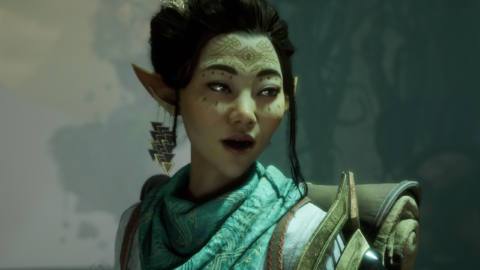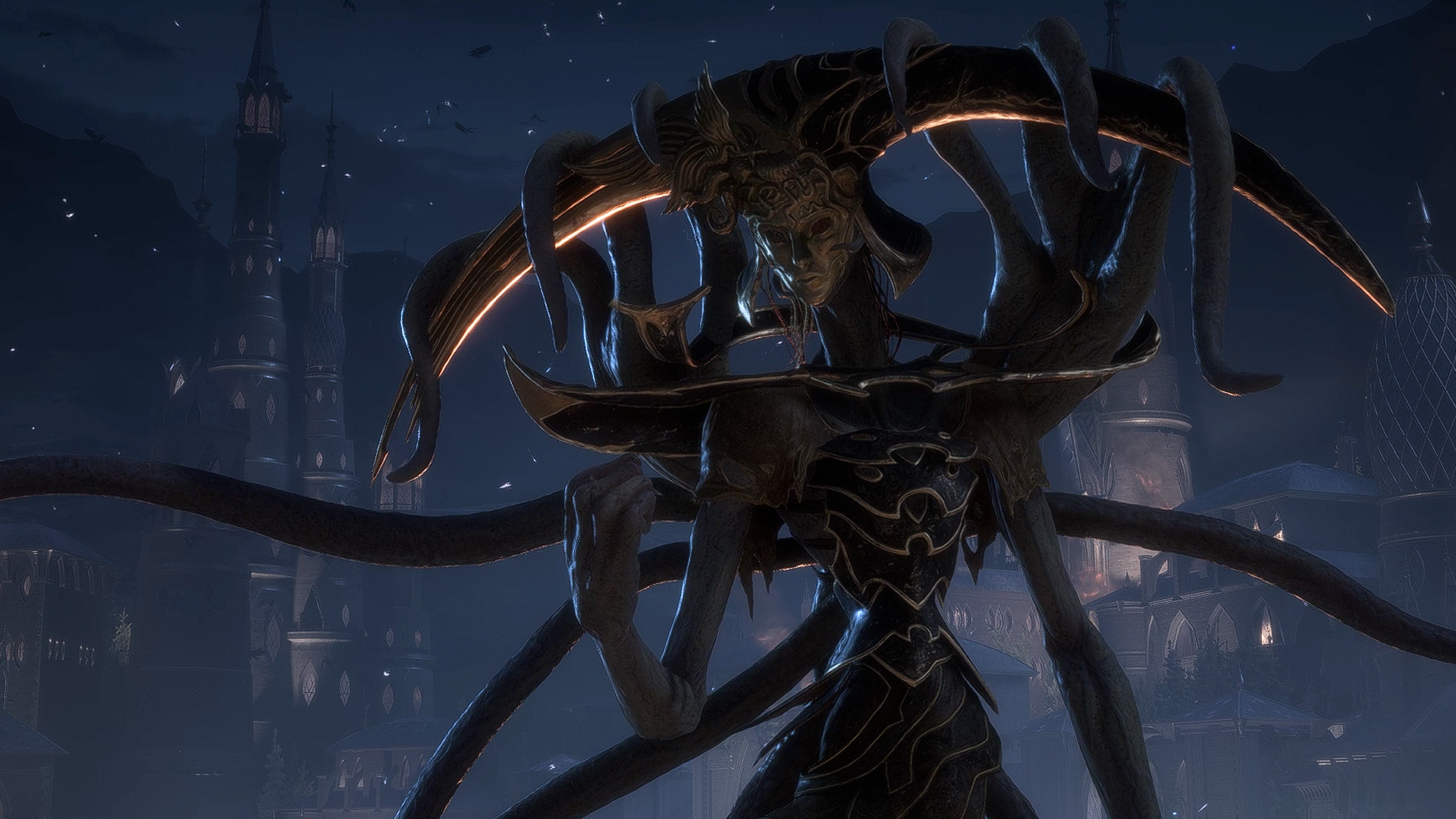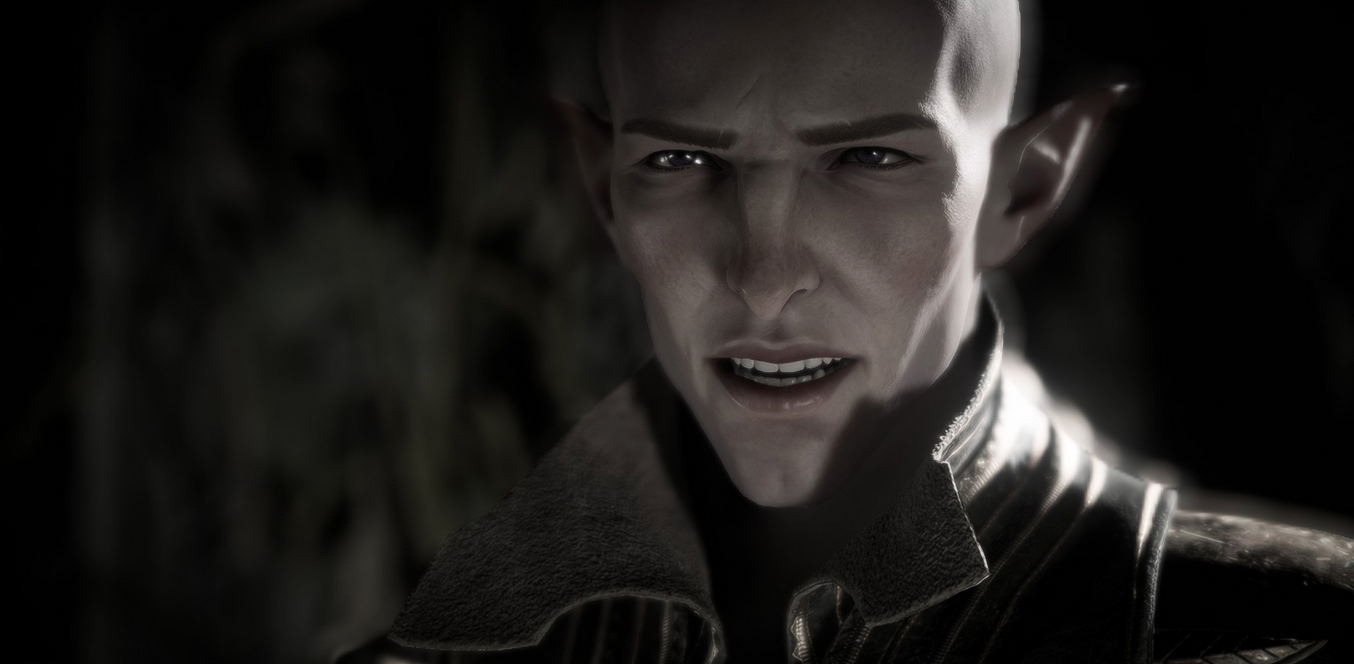
Dragon Age: The Veilguard has a lot of big lore reveals — which makes sense when the two main villains are the elven gods who had been locked away for thousands of years. The franchise has always been about confronting what everyone thinks is true and realizing that the truth is way more complicated. In the case of Elgar’nan and Ghilan’nain breaking free and trying to conquer the world, this means a huge reckoning for the Dalish elves, who historically worshipped the two of them as part of the elven pantheon.
“I’ll say one of the greatest challenges of this game, but also one of the most enjoyable things, was, How do the Dalish react when their gods are out in the world and rampaging?” creative director John Epler told Polygon.
It seems that across the board every Dalish elf in the game pretty much rejects their risen gods now that they’ve shown their true hand. Two of Rook’s companions, elven historian Bellara Lutare and Grey Warden Davrin, come from Dalish clans themselves and even though they’re a little shaken about confronting their gods, they’re not conflicted about doing so. In fact, among Elgar’nan and Ghilan’nain’s lackeys and puppets, there’s not a single elf to be found.

Epler said that it’s vindication for the Dalish — which is nice to see considering how they’ve been portrayed in past games.
“Dragon Age has not always been the kindest to the Dalish,” he said. “Somebody once made a joke to me, and it’s not untrue, that it’s possible to wipe out a Dalish clan in all three of the games in some way.”
In Origins, siding with the werewolves in the Brecilian Forest quest leads to the clan being destroyed. In Dragon Age 2, if you defend your companion Merrill’s blood magic usage, her clan attacks you and must be killed. And in Dragon Age: Inquisition, if you’re playing as an elven Inquisitor, you can accidentally kill your clan by picking the wrong options in the War Table mission. It’s not easy being a Dalish elf in Thedas.
Still, though, why haven’t any Dalish elves decided to join forces with their gods? As Epler put it, the gods simply don’t care about them. They’re looking for followers in other places. Even though the end of Dragon Age: Inquisition’s Trespasser DLC revealed that Solas had amassed a network of elven agents, they weren’t going to be swayed.

“Solas’ agents were never there for power,” Epler said. “They were there for a sense of identity and a purpose. And I would say that it’s fair that Fen’Harel probably bent the truth to them when he was doing his recruiting pitch — the part where he says ‘I’m going to destroy the world’ at the end of Trespasser [was] not what he was telling them.”
Solas’ agents are almost jarringly absent from The Veilguard, with barely any mention of how far and wide they spread in the years prior to the game. But they do have very good reason for not being the ones joining up with the gods.
“Those blighted, decrepit gods, they’re not bothering with the soft pitch,” Epler explained. “Their pitch is, We’re going to make a horrible world. We’re going to give you a lot of power, and maybe you’ll be OK.”
On a more meta note, the Dalish just needed an in-game win. It’s refreshing that Bellara and Davrin get to honor their culture and also not be ostracized from it and possibly forced to kill their clan, as was the case with Merrill in Dragon Age 2. And instead of being accidentally (or purposely!) killed off by the player character, the Dalish elves in The Veilguard get to righteously rally against the mages that they once called gods and reclaim part of their history.
“I love that the Dalish in this game, by and large, are saying, No, we were lied to. We were the first victims of these gods. We’re going to fight back,” Epler said. “And they really get a sense to kind of rise up in this game and start establishing themselves in this way that in the future I can’t wait to go back to, but in this game gives them a sense of a win. They get a victory in how they respond to the threat of the gods in this game.”
